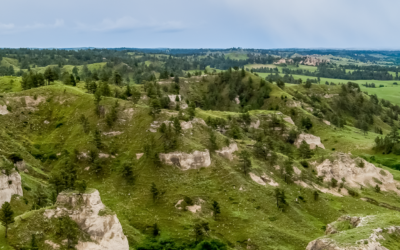Easements critical for internet access
It’s already cliché to say that the internet has transformed the way almost everyone interacts with the world. According to Statista, a data and forecasting firm, roughly five billion people around the world access the internet each day.
That’s a lot of people and it’s growing exponentially every year. One of the first things that we at Golden West think about is the millions of miles of cabling required to serve five billion internet users. The next thing we think about is the number of approved easements needed to bury millions of miles of cable in the ground to serve billions of customers.
Easements play a critical role in getting internet access to customers, particularly in rural areas. In fact, if it wasn’t for easements, it would be extremely difficult – and very expensive – to bring life-affirming services to people who want and need them. Water, natural gas, electricity and yes telecommunications, all need easements to connect homes or businesses.
An easement is an agreement that allows for crossing or using someone’s land for a specified purpose. For cooperatives like Golden West, obtaining private easements at no cost is the
most common and by far the best approach to delivering services to rural areas while keeping prices competitive.
Accessing easements on private land can save a lot of time and money for a cooperative and its members. For example, burying cables in the public right of way like a road ditch can lead to outages as other utility companies dig to fix or add lines. Also, roads are often widened or rebuilt, requiring all utilities including telecommunications to move cables at their own cost. Not only does it raise the risk of outages, it costs the cooperatives a lot of money that can ultimately impact service rates for members.
Golden West starts obtaining private easements for its fiberoptic technology upgrades at least a year before homes or businesses can start using the new improved service. The cooperative and its contractors have an excellent track record of working closely with landowners.
“We treat private easements with great care,” says Marty Huether, manager of engineering for Golden West. “After work is completed, Golden West will do everything in our power to restore the easement portion to its original condition or better.”
Private easements aren’t always used just for the one individual who owns the land. They often make it possible to provide services to other family members or even adjacent neighbors. In fact, many people enjoy the internet and utility services today because their neighbor down the line allowed an easement through their land to make it happen.
Golden West is thankful for everyone who has provided private easements in the past. You have helped yourself and your neighbors get critical services to rural South Dakota. Thank you!



